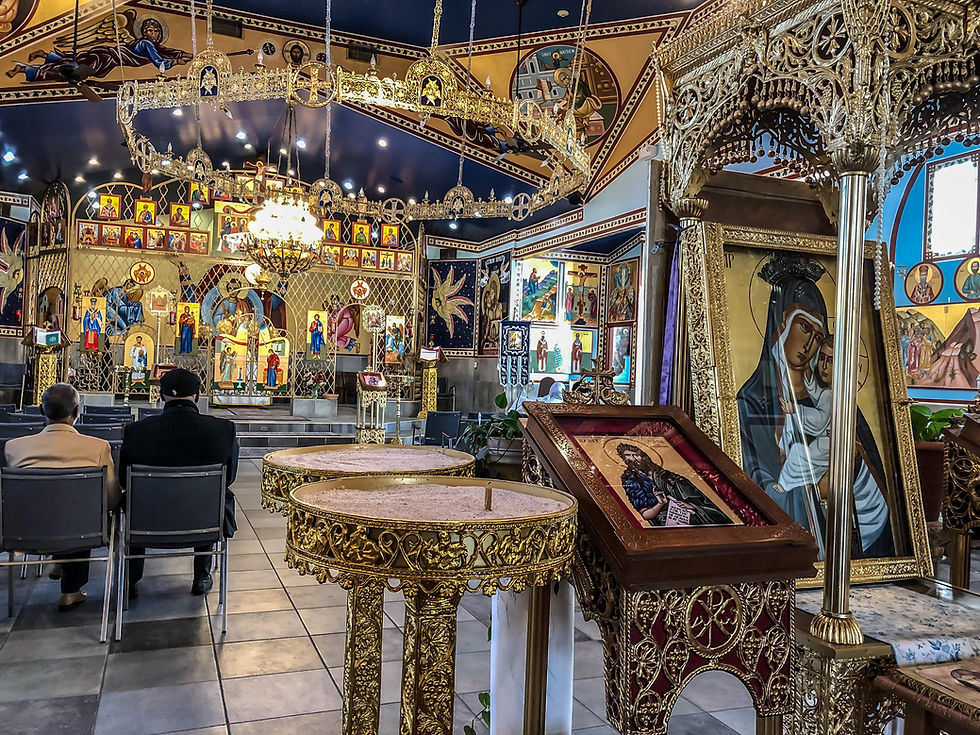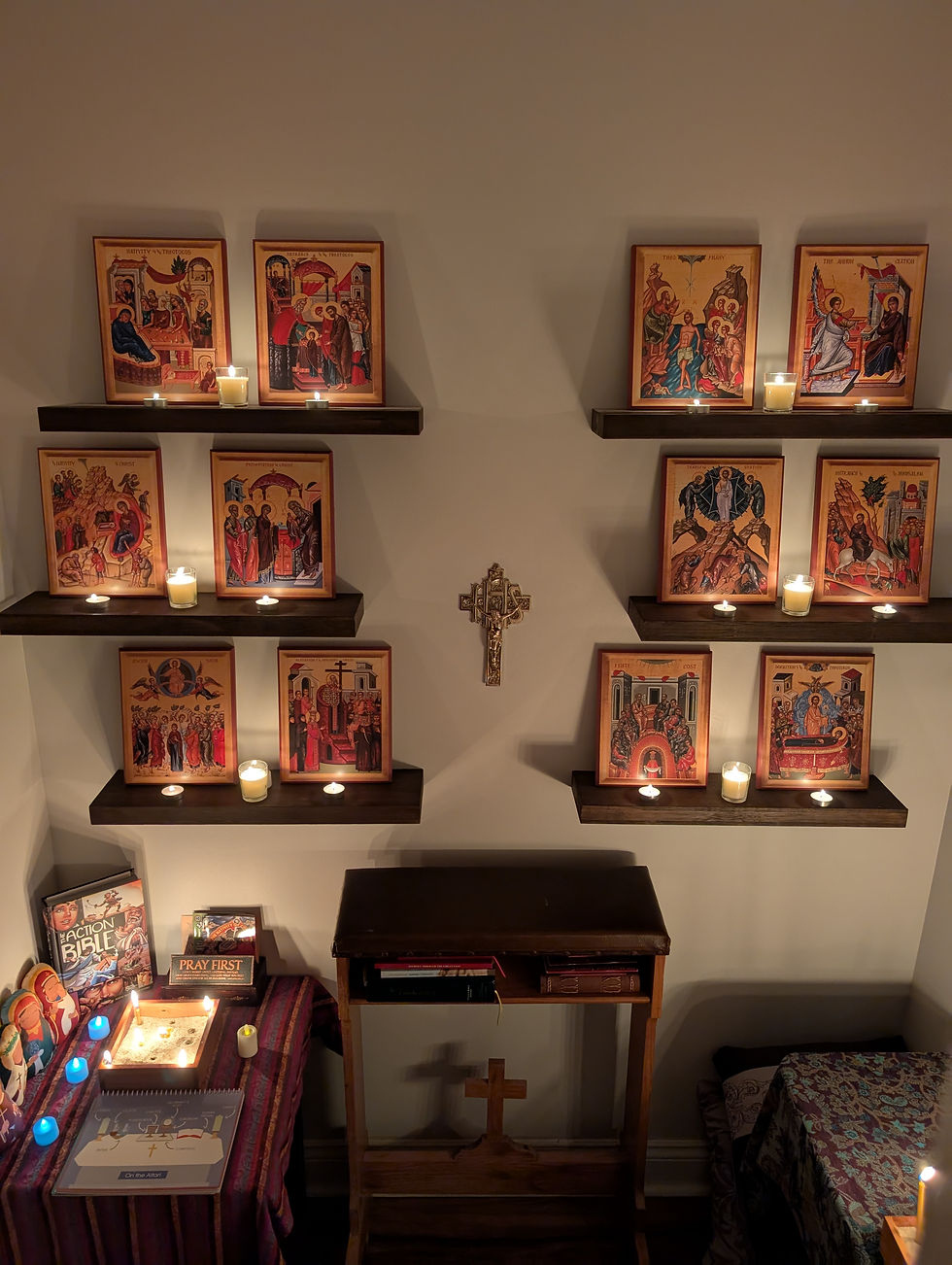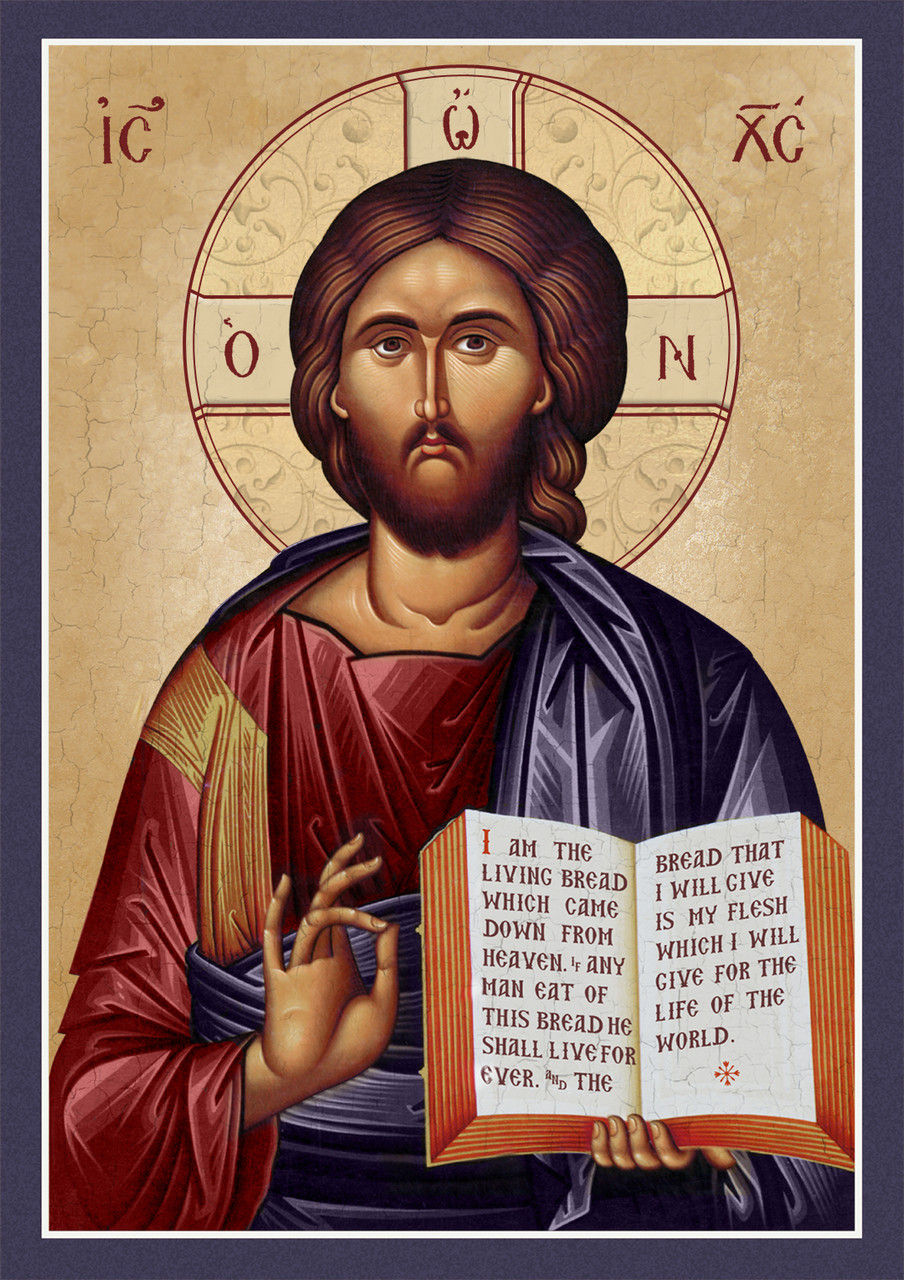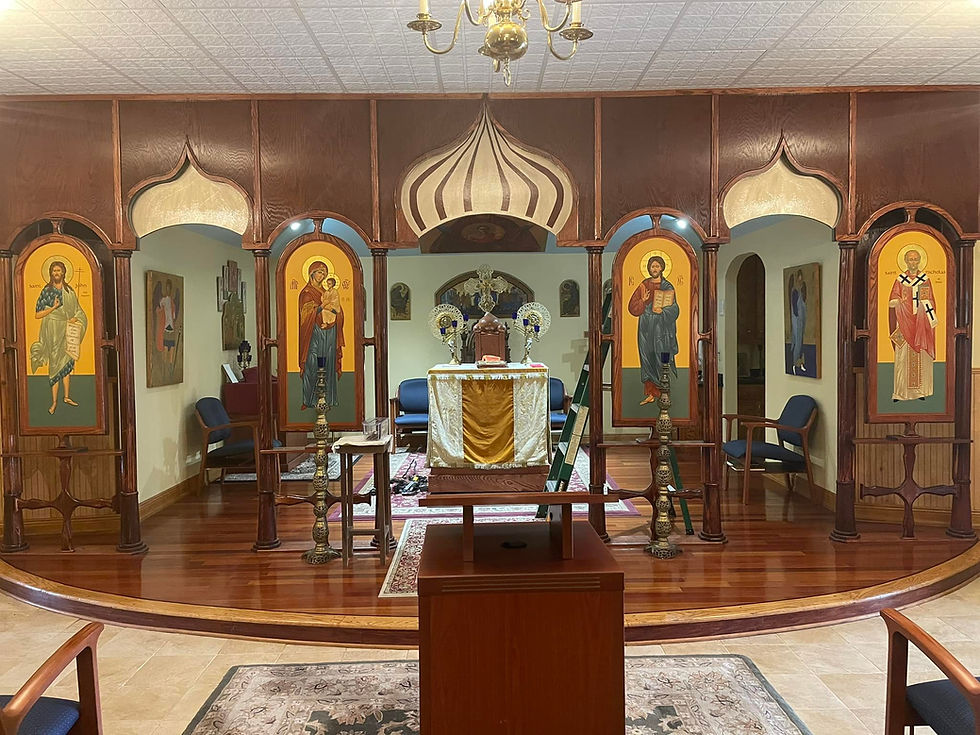Beginning Byzantine
- byzantineoutreacho
- Jun 1, 2025
- 4 min read
Updated: Jun 22, 2025
When it comes to exploring different religious traditions, the Byzantine Catholic tradition stands out for its rich history, beauty, and sacredness. For those looking to deepen their faith or simply learn more about this ancient tradition, hopefully this website will serve as a valuable resource. This online platform, created by the St. Nicholas of Myra Church in New Orleans and Byzantine Outreach of Acadiana, aims to provide a welcoming space for individuals from various religious backgrounds to discover the beauty of the Byzantine Catholic tradition.

Icon Corner/Prayer Room
One traditional way to begin practicing the Byzantine Catholic faith is by establishing a prayer routine with an icon corner or prayer room. A Byzantine icon corner, or prayer room, is a sacred space within the home where Eastern Catholic and Orthodox faithful cultivate their spiritual life. Traditionally set in a quiet, east-facing corner, this area features a small table adorned with icons of Christ, the Theotokos (Virgin Mary), and saints, reflecting the Byzantine emphasis on visual prayer. Often accompanied by a vigil lamp, candles, and a cross, it serves as a focal point for personal devotion. Families gather here daily for prayers, such as the Jesus Prayer or the Morning and Evening Prayers, and it may include a prayer book or rosary. Historically rooted in early Christian house churches, icon corners became widespread by the Byzantine era, symbolizing a domestic altar. Note: One can begin with a single icon--just make sure the space is dedicated for prayer and that it is not in a noisy area, such as near a television.
*If you would like to purchase an icon, recommended vendors are Legacy Icons or Uncut Mountain Supply.

Recommended Prayers
Jesus Prayer
Overview: The Jesus Prayer, "Lord Jesus Christ, Son of God, have mercy on me, a sinner," is a concise, meditative prayer inspired by the parable of the Publican (Luke 18:13) and the cry of the blind man Bartimaeus (Mark 10:47). Developed in the Eastern Christian monastic tradition by the 5th century, it became a cornerstone of Hesychasm, a practice of inner stillness and continual prayer. Byzantine Catholics use it for personal devotion throughout the day, often with a prayer rope (chotki), to foster a constant awareness of God’s presence.
Practice: Recited repeatedly, either silently or aloud, for 5-20 minutes, especially in the icon corner. It’s adaptable to any moment—walking, working, or resting. Traditionally, Byzantines say this prayer 50 times in the morning during fasting seasons.
Trisagion Prayers (Link to full Trisagion prayers)
Overview: The Trisagion Prayers form a traditional opening sequence in Byzantine worship, dating back to at least the 4th century, possibly linked to a vision of the Seraphim in Isaiah 6:3. Comprising hymns and invocations, they prepare the heart for prayer, invoking the Holy Trinity and seeking mercy. Used in Morning and Evening Prayers, liturgical services, and private devotion, they reflect the communal and Trinitarian focus of Byzantine spirituality.
Text:
In the Name of the Father, and of the Son, and of the Holy Spirit. Amen.
Glory to You, our God, glory to You.
Heavenly King, Comforter, Spirit of Truth, Who are everywhere present and fill all things, Treasury of Blessings and Giver of Life, come and dwell within us, cleanse us of all stain, and save our souls, O Good One. (Omitted from Pascha to Pentecost)
Holy God, Holy Mighty, Holy Immortal, have mercy on us. (3 times)
Glory to the Father, and to the Son, and to the Holy Spirit, now and ever, and unto ages of ages. Amen.
O Most Holy Trinity, have mercy on us. O Lord, cleanse us from our sins. O Master, pardon our transgressions. O Holy One, visit and heal our infirmities, for Your Name’s sake.
Lord, have mercy. (3 times)
Glory to the Father, and to the Son, and to the Holy Spirit, now and ever, and unto ages of ages. Amen.
Our Father, Who art in heaven, hallowed be Thy name. Thy kingdom come. Thy will be done, on earth as it is in heaven. Give us this day our daily bread, and forgive us our trespasses, as we forgive those who trespass against us. And lead us not into temptation, but deliver us from evil.
Note: After the Our Father, the priest or leader may continue with, "For Thine is the kingdom, and the power, and the glory, of the Father, and of the Son, and of the Holy Spirit, now and ever, and unto ages of ages. Amen." In private prayer, the faithful may end here or proceed to personal intercessions.
Practice: Prayed standing, facing icons, typically taking 5-10 minutes. Often led by a family member or cantor in a home setting.
Our Father
Overview: Known as the Lord’s Prayer, this prayer was taught by Jesus to His disciples (Matthew 6:9-13, Luke 11:2-4) and is a universal Christian prayer. In the Byzantine tradition, it holds a prominent place in the Divine Liturgy, Morning and Evening Prayers, and personal devotion. Its use reflects the Church’s emphasis on Christ’s teachings, adapted with slight variations in wording to align with Eastern liturgical style.
Text:
Our Father, Who art in heaven, hallowed be Thy name. Thy kingdom come. Thy will be done, on earth as it is in heaven. Give us this day our daily bread, and forgive us our trespasses, as we forgive those who trespass against us. And lead us not into temptation, but deliver us from evil.
Note: In the Byzantine tradition, this is often followed by "For Thine is the kingdom, and the power, and the glory, of the Father, and of the Son, and of the Holy Spirit, now and ever, and unto ages of ages. Amen." The prayer is accompanied by the sign of the cross, made from right to left with two fingers and a thumb together.
Practice: Recited during prayer sessions or services, often with a bow or sign of the cross, lasting about 1-2 minutes. It’s a communal prayer, uniting the faithful with Christ’s words.
Liturgical Songs to Learn (Link to all songs and tones from Archeparchy of Pittsburgh)
Sunday First Antiphon ("Shout Joyfully to the Lord")
Sunday Second Antiphon ("Be gracious to us")
Trisagion ("Holy God")
Hymn to the Theotokos ("It is truly proper")
"Many Years" (used for birthdays, anniversaries, and ordinations)



Comments